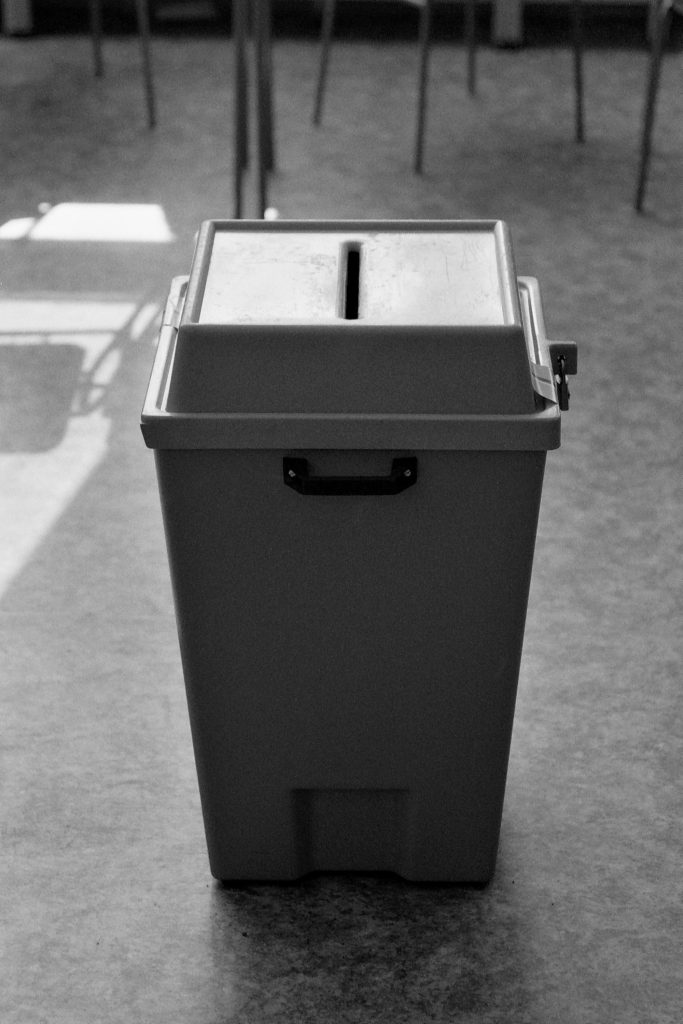Nyhet 2022-08-23
Inför demokratiska och flerpartival i Angola
Sammanfattning
Onsdagen den 24 augusti 2022 kommer Angola att hålla sitt femte demokratiska och flerparti val. MPLA har styrt landet sedan landets självständighet 1975, men stödet för det styrande partiet har försvagats under åren, särskilt bland stadspubliken. President Lourenço, som kandiderar för sin andra mandatperiod, lovade mer transparens, mindre korruption och inkluderande styrelseformer. Men i slutet av sin första mandatperiod är hans styrelse lika auktoritär och starkt kritiserad som hans föregångare.
Angola står inför en ekonomisk recession som delvis orsakas av fallet i det internationella marknadspriset på råolja, Angolas viktigaste exportvara. Allvarlig torka i provinser i södra Angola drabbar mer än två miljoner människor, vilket orsakar svält och död för djur på grund av brist på betesmark. Extrem fattigdom har ökat med 9 % under de senaste tre åren och drabbar nu 44 % av angolanerna.
Den politiska spelplanen i Angola gynnar MPLA, som använder statliga resurser, inklusive statsägda medier och mänskliga resurser, för sin valkampanj. Oavsett resultatet av valet förutses konflikter och våld efter, där medling skulle behövas för att undvika dessa.

Pre Angolan Elections
On Wednesday, 24 August 2022, Angola will hold its fifth democratic and multiparty elections amid the strengthening of opposition parties and popular contestation against the government of the Popular Movement for the Liberation of Angola (MPLA). The MPLA has ruled the country since the country’s independence in 1975, however, support for the ruling party has weakened over the years, especially among the urban public.
President Lourenço, who is running for his second term, promised more transparency, less corruption and inclusive governance. But at the end of his first term, his governance is as authoritarian and highly criticized as that of his predecessor, the late José Eduardo dos Santos (1942-2022) who governed the country between 1975 and 2017.
Adalberto Costa Junior was elected as the new leader of the National Union for the Total Independence of Angola (UNITA) in 2019 ending 16 years of Isaiah Samakuva’s leadership who replaced the late founding president Jonas Savimbi (1934-2002). His election was later suspended through a decision of the Constitutional Court following some UNITA members’ allegation of irregularities in the 2019 elective congress. Some people believe that the ruling party was behind this decision or at least would benefit from a weaker UNITA.
This case contributed to an increase in the popularity of Adalberto Costa Júnior who together with the other two leaders created an informal coalition, the United Patriotic Front (Frente Patriótica Unida) in 2021. This is an electoral political platform that will work as a governmental pact among Bloco Democratico (Democratic Bloc) led by Justino Pinto de Andrade and Filomeno Viera Lopes and the projecto politico PRA JÁ Servir Angola (Serving Angola FOR NOW political project) led by Abel Chivukuvuku, a former UNITA member.
The union of the opposition, a grouping that includes independent civilians, is considered a historic milestone in Angolan politics, which seems to be a major threat to the governing party in the coming elections. For this year’s elections, 14 399 391 voters are registered to vote.
Angola faces an economic recession caused in part by the drop in the international market price of crude oil, Angola’s main export commodity. This led to the historic devaluation of the currency (Kwanza) against the US dollar and euro, the main exchange currencies (1 USD is approximately 421 Kwanzas). The cost of living soared in urban centres. Severe drought in provinces in southern Angola is affecting more than two million people, causing starvation and death of animals due to lack of pasture. Extreme poverty has increased by 9% in the last three years, now affecting 44% of Angolans.
The government’s management of these problems has not been appreciated by the population and civil society organisations, leading to popular demonstrations in major cities against the governance of the MPLA and Lourenço. Demonstrations have been violently suppressed by police where several people have been arrested and accused of organising subversion. Despite this, civil society is strengthening itself to observe the elections and carry out parallel vote tabulation.
The political field in Angola favours the MPLA, which uses state resources, including the state-owned media and human resources, for its electoral campaign. Electoral bodies and electoral justice also favour the MPLA. The African Union and regional economic communities of which Angola is a member state, namely the Southern African Development Community (SADC) and Economic Community of Central African States (ECCAS) were invited to observe. Whilst the European Union (EU) expressed interest in and willingness to send a mission to contribute to a free and transparent 2022 electoral process, the Angolan authorities had not responded by mid-July.
Whatever the outcome of these elections will be, post-election conflict and violence are anticipated, where mediation would be needed to avoid these.
Notes:
Summary from Borges Nhamirre Free and fair? Angola’s uneven election playing field, 2022, Institute for Security Studies. https://issafrica.s3.amazonaws.com/site/uploads/sar-52.pdf